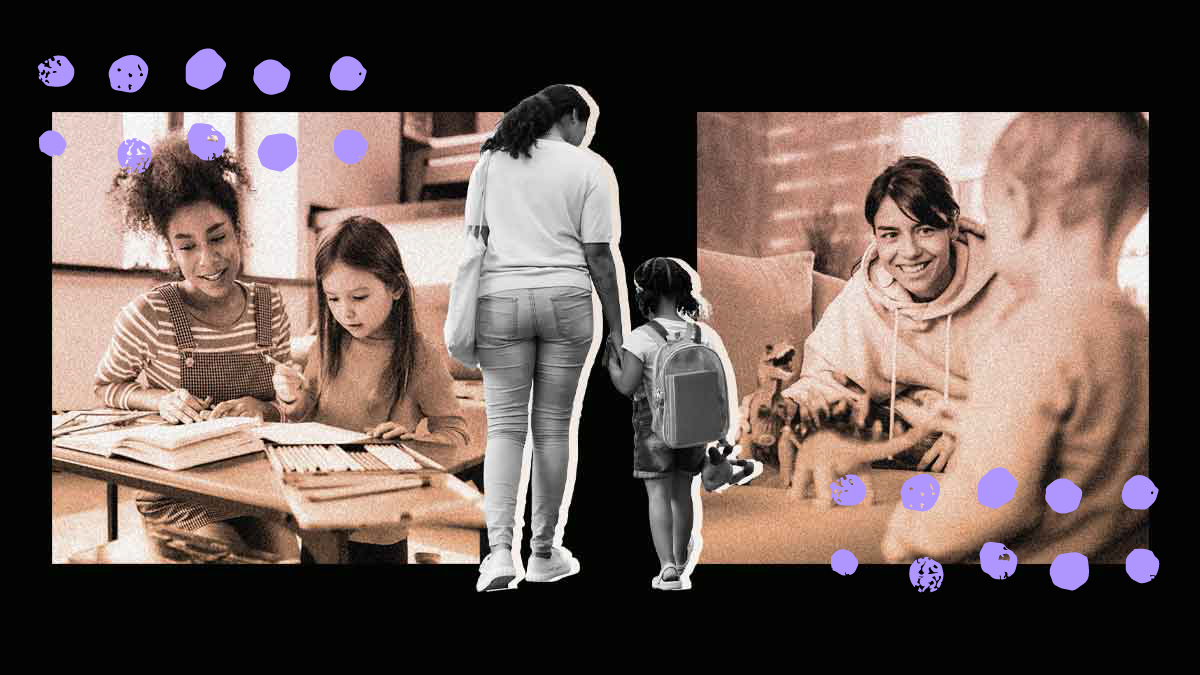Note: We are only including the first names of caregivers to protect their personal information and safety.
Think back to your childhood. Who helped shape those early years—maybe teaching you new words, guiding you through homework, or making sure you were safe and cared for? Whether it was a grandparent, auntie, abuela, or neighbor, many of us have had trusted caregivers beyond our parents who played a vital role in our growth. Yet, the conversation around family values often overlooks the unsung heroes who step in when parents can’t do it all.
Family, Friend, and Neighbor (FFN) caregivers have been the backbone of child care for generations, quietly doing the work that keeps families afloat. Today, around half of all children in non-parental care are looked after by FFN caregivers. Yet, their contributions often go unnoticed. Their care provides more than just supervision; it shapes children’s early development, offering stability and love that is essential for growth.
FFN caregivers like Blanca, Olivia, Martha, Laura, Carolina, and many others do more than watch over children—they nurture their social-emotional and cognitive development. They become deeply woven into the fabric of the child’s life, providing a sense of security and belonging. As Blanca explains, “I have always compared it to a plant because if we do not give it a good base layer, fertilizer, water, heat, and love, the plant will not grow as it should.”
Their impact extends far beyond the children they care for, shaping entire communities. Carolina experienced this firsthand when, nearly 20 years later, one of the children she taught reached out to her.
“Carolina, I will never forget what you taught me,” he told her. “Something I have always had in mind and changed my course of life is that time when you lent a hand to someone who needed help and you didn’t know that I was watching. That made me the man that I am today. Thank you very much for that because now I am a lawyer and I run a non-profit organization that helps people with limited resources find housing, food, and support in their community. Because of that action you took, I wanted to help others.” His words underscore the lasting influence of FFN caregivers, rippling across generations.
Many caregivers step in out of necessity. Martha recalls how her caregiving journey began: “I started taking care of my niece 19 years ago. My sister had to go back to work and gave me her 2-month-old daughter to care for.” Laura provided crucial caregiving support to a grandmother who had custody of her infant granddaughter. “I knew the grandmother and I offered to help her take care of the baby because she had to work, and from one day to the next she had to take care of a baby with delicate health conditions….Now seeing the girl growing up healthy and happy makes me feel very lucky.” These stories highlight not just the practical role of FFN caregivers, but the deep emotional bonds they form with children they care for.
During the pandemic, as child care centers shuttered and costs soared, families turned to FFN care more than ever. These caregivers showed up—despite the risk to their health and the lack of recognition. Although their role is crucial to supporting families, FFN caregivers remain largely absent from the national child care conversation—and even more so from discussion about “family values.” This conversation rarely acknowledges the realities of working families, particularly single parents, low-income households, and those with non-traditional work hours— the very families FFN providers so often support when no other options exist.
This disconnect reveals a deeper truth: while FFN caregivers reflect the community-based care and commitment that “family values” claim to celebrate, they remain overlooked and unsupported in the very systems that should uplift them. Instead of investing in this vital work, the dominant narrative romanticizes the idea of parents or grandparents staying home to raise kids. “Staying at home to raise a child has become a privilege,” says Blanca, a sentiment echoed by Olivia who highlighted that, for many families, “the word ‘pro-family’ does not mean parents and/or grandparents should stay to take care of the children, rather there should be more support for child care and FFN care.”
Even with their critical role, FFN caregivers often lack the support they need. Indeed, policymakers often fail to recognize both the contributions and the needs of FFN caregivers. Olivia emphasizes, “We need people to get to know us better and see from a human perspective that we offer truly quality care.” The absence of proper support systems leaves FFN caregivers without access to essential resources like health care, training, and financial aid. As Olivia notes, “If we do not have a license, we are not seen as professionals and therefore we cannot have access to resources and benefits, health insurance, training, scholarships to continue preparing ourselves.”
The enduring value of FFN caregivers may not always be in the spotlight, but their contributions are immeasurable. They were there before the pandemic, they were there when the world shut down, and they are still here now—holding families together. But caregivers shouldn’t be left to bear this burden without any support.
As FFN caregivers like Blanca, Olivia, Martha, Laura, Carolina, and many others continue to support the next generation, the question remains: when will policymakers finally support those who give so much of themselves to others?





